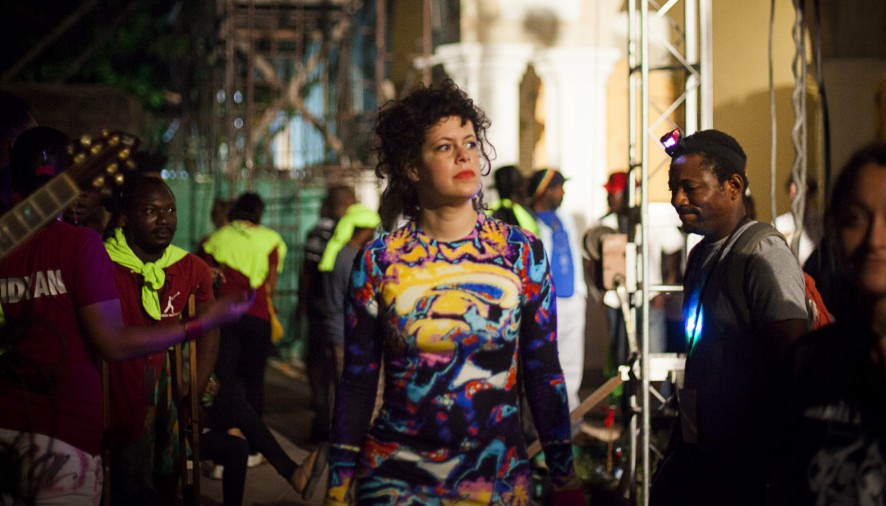Haiti is an island thought of by some as riddled with violence, turbulence (politically and tectonically) and poverty. Most will probably instantly think back to the devastation of the 2010 earthquake, where supposedly only 1% of donor funding has gone directly to the government.Very little acknowledgment is given to Haiti as the first independent black republic outside of Africa. In 1791, Haiti was the site of the ‘largest and most successful slave rebellion of the Western hemisphere’ not only ending national slavery, but also French control over the colony. The French had banked on Haiti as its wealthiest overseas economy – sugar, coffee, indigo, and cotton exports – maintained through extreme exploitation of its inhabitants. Haitian slaves liberated themselves in 1794 (in the other French colonies, it wasn’t until 1848 and in the US it wasn’t until 1865) thus they were the pioneers for the revolutions; they were advanced beyond the ‘enlightened’ nations of Europe. The Haitian revolution was generous, stating that any slave or anyone of Indian descent to set foot in the land would be freed: ‘freedom, not slavery, was the natural state of humankind’.
The country’s society began to reorganize and reproduce itself, and has spent the last 200 years doing so but two centuries of independence does not necessarily make a nation wealthy. However there has always been a strong sense of belonging: the nation’s first constitution stated that no matter the colour of your skin, you were considered black. Symbolism over racism.
Inevitably, music and lyrics sprout from the hardships, stories and burgeoning sense of patriotism and community. Where slavery and political unjust has been an enduring shroud over the country, Haiti’s native rara music scene has been an enduring influence on Win Butler and Regine Chaussagne, the power couple behind Arcade Fire.
Many do not know that Chaussagne – the prominent female vocalist – traces her roots back to Haiti. Or of the relationship between the Canadian band and the Carribean nation. Chaussagne is the daughter of two Haitian immigrants: her family came from Jérémie, where a lot of light-skinned, upper-class Haitians lived, and which was a particular Duvalier (1960s death squads that were eliminating political enemies) target.
But Haitians do not know the band. Flyers for a midnight gig last year in the capital, Port-au-Prince to mark the start of Kanaval clarifies them as ‘Arcade Fire de Canada’. With this disconnect between the people of Haiti and a band that draws so heavily upon the culture of the nation has come criticism. Claims of exploitation and appropriation.
The ‘Reflektor’ symbol that swarmed social media in the run up to their latest album release was inspired by Haitian veve graffiti, used in syncretistic Vodoun practices to summon the Loa (angels or spirits; messengers to the deity). Even out of context, the symbol evokes mystery and esotericism. The ‘bobbleheads’ seen throughout their reflektor singles and tour are a reference to the papier mache masks made for the intense whirlwind that is the Haitian Kanaval. This is the ultimate teaching of global awareness and appreciation. It is not exploitation. Slavery was exploitation. This is collaboration.
Win Butler talking to Rolling Stone: “The most Haitian song on the whole record is “Here Comes the Night time,” which is kind of a rara beat, but it’s like kind of a hybrid of Haitian rara and Jamaican influence. We spent some time in Jamaica, but it sounds like a Cure song at the end of the day, kind of a mashup. I mean, it’s not like our band trying to play Haitian music.”
One single from their first album ‘Funeral’ is the tender homage to the nation, with Chaussagne giving a solo performance with a mish mash of French and English lyrics, proving that as a band they have developed from their roots, shown album on album. Throughout “Flashbulb Eyes” – from the recent ‘Reflektor’ album – glimmering marimbas will, for many listeners, conjure a specific idealization of the Caribbean (where Haiti is located), while singer Win Butler wails about cameras stealing soul: a juxtaposition of the pressures of fame against the pressures of poverty. On the deluxe version of the album, Flashbulb Eyes features Dennis Bovell, a Jamaican and the only black poet to be published in penguin modern classic series.
Arcade Fire are to their credit heavily invested in the nation. Regine scribed a most stunning plea for The Observer in the wake of the 2010 earthquake (Read here: http://www.theguardian.com/commentisfree/2010/jan/17/haiti-earthquake-aid-casualties), and the band has been working in partnership with the charity Partners in Health since 2004. Through this partnership the band donates a percentage of every gig ticket sold, and donations from the band have been regular occurrences. The work done through this partnership has led to pioneering work in bringing HIV treatment to rural areas of Haiti.
Haiti is a failed state. No amount of foreign aid will ever change that, so divert the attention to raw and unique cultural, musical output: the first step in a long escalator of benefits. To see bands contribute to the development of nations in such a fashion is not uncommon – Arcade Fire also seeks to help develop Cine Institute, Haiti’s only film school – but to see such a personal and emotional connection is rare. One need only listen to ‘Haiti’ to hear the tender affection Chaussagne holds for her parent’s home, whether or not you believe the band are guilty of exploiting their connections to this island nation, that cannot be denied.
The country’s motto is ‘L’union fait la force’ (Union makes strength) and Arcade Fire draws from the people and retaliates with music for the people, not for the fame. This is the surefire definition of their work as collaboration not exploitation.
Flora Tiley
Video: Youtube
Photo: Pitchfork; The Atlantic; Huffington Post



